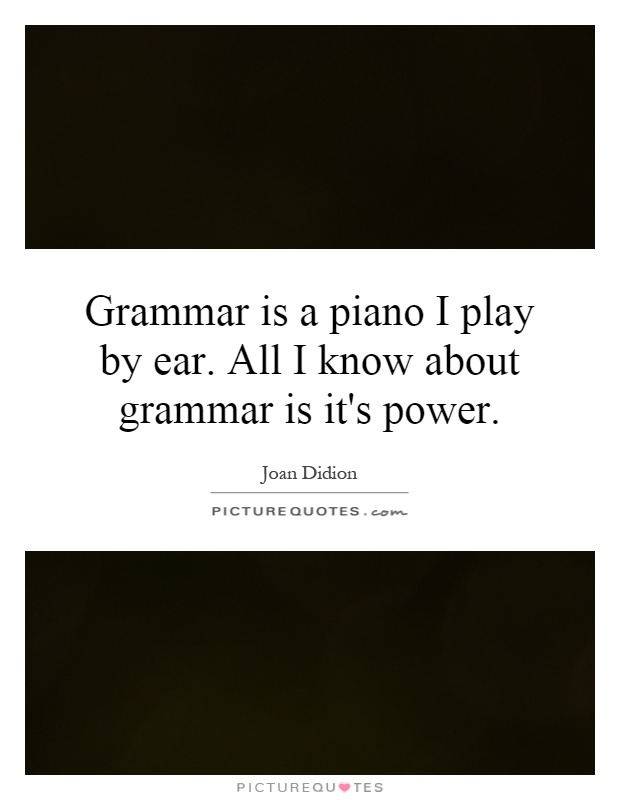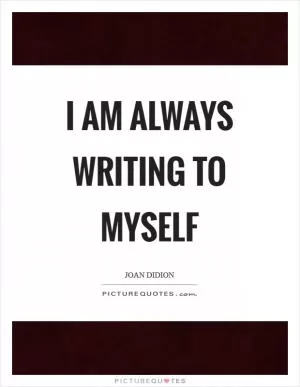Grammar is a piano I play by ear. All I know about grammar is it's power

Grammar is a piano I play by ear. All I know about grammar is it's power
In the world of literature, Joan Didion is a revered figure known for her sharp wit, keen observations, and masterful use of language. Her writing is often described as precise, controlled, and evocative, with each word carefully chosen to convey a specific meaning or emotion. Didion's unique style has captivated readers for decades, and her work continues to be studied and admired by writers and scholars alike.One of the most striking aspects of Didion's writing is her mastery of grammar. In her essay "On Keeping a Notebook," Didion famously wrote, "Grammar is a piano I play by ear. All I know about grammar is its power." This statement encapsulates Didion's approach to writing – she sees grammar not as a set of rigid rules to be followed, but as a tool to be wielded with skill and precision.
For Didion, grammar is not just about correct punctuation or sentence structure; it is about the power of language to shape our thoughts and emotions. By playing the "piano" of grammar by ear, Didion is able to create a unique and distinctive voice that resonates with readers on a deep level. Her sentences are often short and staccato, with a rhythm and cadence that is all her own. This distinctive style allows Didion to convey complex ideas and emotions with a clarity and directness that is both powerful and compelling.
In her essay "Why I Write," Didion reflects on the importance of grammar in her writing process. She writes, "I write entirely to find out what I'm thinking, what I'm looking at, what I see and what it means. What I want and what I fear." For Didion, grammar is not just a set of rules to be followed, but a means of exploring and expressing her innermost thoughts and feelings. By harnessing the power of grammar, Didion is able to delve deep into the human experience and illuminate the complexities of the world around her.












 Friendship Quotes
Friendship Quotes Love Quotes
Love Quotes Life Quotes
Life Quotes Funny Quotes
Funny Quotes Motivational Quotes
Motivational Quotes Inspirational Quotes
Inspirational Quotes